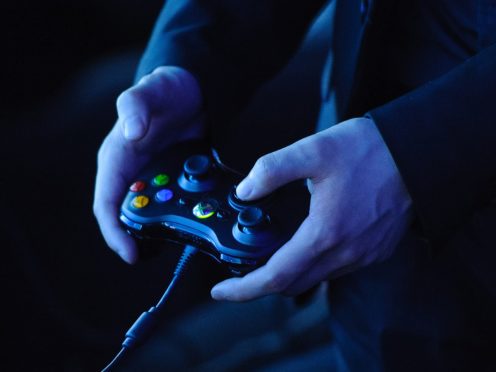Video game players have been urged to play at “reasonable times” to avoid putting extra strain on internet networks during the coronavirus outbreak.
Social distancing measures to curb the spread of the virus has led to large numbers of people working from home or self-isolating, increasing daytime internet traffic.
With people remaining indoors, PC gaming platform Steam has reported record numbers of gamers online in recent days, recording 20 million players online at once for the first time last weekend, and has reached similar figures twice since, according to its own data.
Internet service providers have insisted they can handle already confirmed increases in daytime traffic, with both BT and Virgin Media saying on Friday that even though they are seeing an increase, traffic is still well within capacity limits.
Rik Henderson, video games expert and senior editor of news and features for UK-based technology site Pocket-lint, said people turning to games during isolation was inevitable, as a means of entertainment and social interaction, but urged players to be aware of going online during working hours.
“While video streaming services, such as Netflix and YouTube, are committed to reducing their digital footprint during the coronavirus crisis, gaming is perhaps the biggest threat to internet bandwidth in the next few months,” he said
“Some services have seen spikes in user activity already, including Fifa online play and Steam access, and that will only continue as people turn to their gaming devices to keep entertained during self-isolation.
“To be honest, though, it is understandable.
“As we are all removing ourself from physical social interaction for the next 12 weeks, at least, online games can provide other forms of social contact and friendship without the risk of infection.
“Fortnite, Call of Duty: Warzone and the like will, therefore, no doubt become even more popular as isolation continues, but we do all need to be aware of the impact on our country’s network infrastructure and perhaps game at more reasonable times, in the evening, say, in order to avoid any impact on important services and work, as consumer internet connections are less robust than the usual business lines.”
Call of Duty: Warzone, the new free-to-play game from the popular warfare series, was released early last week and within five days had already amassed more than 15 million players.
Last week, an Italian telecoms company told analysts it had seen a 70% increase in internet traffic.
Telecom Italia told analysts it believed the rise was due to a surge of online gaming as the country went into lockdown and schools closed.
In response to concerns over network capacities across Europe, Netflix, Amazon Prime Video and YouTube have all confirmed they are limiting the image quality of videos to help ease levels of internet traffic.
